'Ghost' at 30: Star Tony Goldwyn says he was 'shocked and stunned by how much people hated my character' (exclusive)
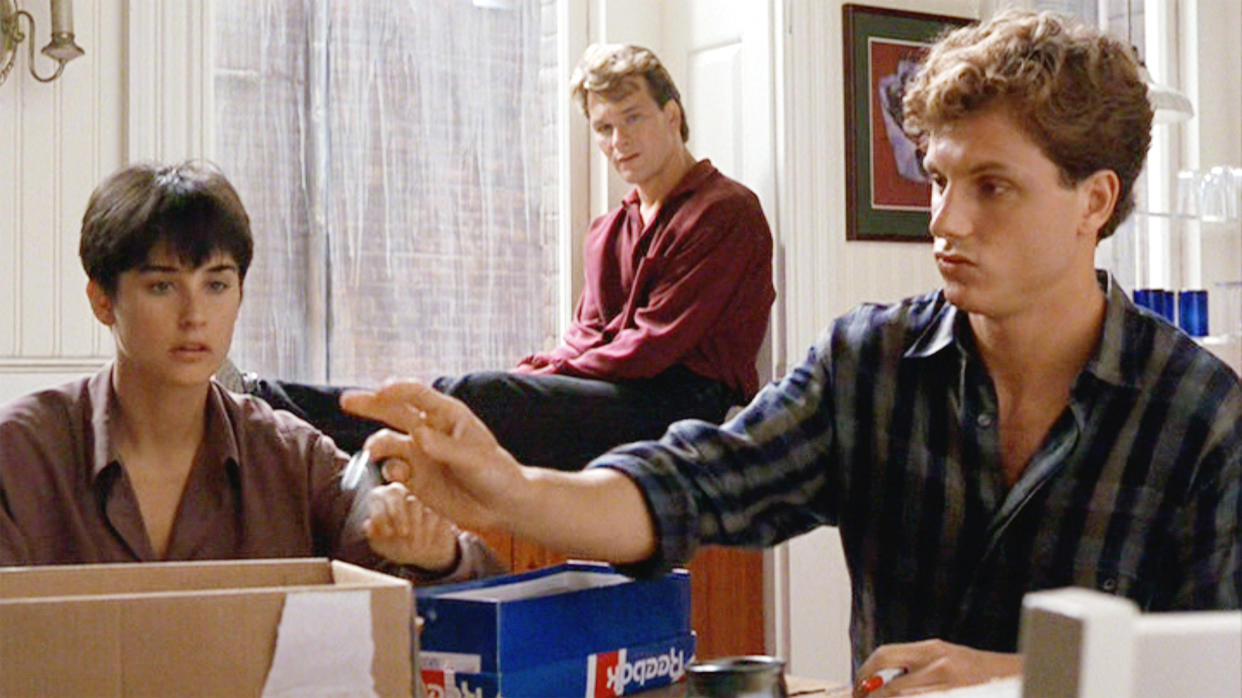
It didn’t look like having a whisper — dare we say ghost? — of a chance at the 1990 box office, but as the Patrick Swayze-Demi Moore weepy celebrates its 30th anniversary this July, Ghost has proved to be one of the most enduring cinematic romances.
The story of Molly (Moore) grieving for lost love Sam (Swayze), only to find she’s protected by his spirit when her life is in danger, was the classic sleeper hit. After respectable opening figures, it took off thanks to some good old-fashioned word-of-mouth buzz to became the highest grossing film of the year.
Swayze was an overnight star, Whoopi Goldberg (in her breakout role) won an Oscar, and writer Bruce Joel Rubin won his second Academy Award for the original screenplay.
For Tony Goldwyn, a struggling actor at the time who landed the role of Sam’s buddy Carl, it turned him into a cinematic public enemy number one.
So why did the film capture our hearts and become a perennial favorite?
The story

Crime, action, betrayal, romance, death, the afterlife ... mixing them all together in one film was tricky enough to pull off, but Rubin added a large helping of comedy for good measure.
Yet it was something more instinctive that brought in the audiences, a magnetic emotional appeal that worked on so many levels. Swayze’s character’s reluctance to use the “L” word — replacing it with “ditto” — but finally getting a second chance to say it has moved grown men to tears.
And the idea of love continuing after death was something that jumped off the page for Goldwyn.
“I remember thinking that if it was done properly it would deliver on so many levels,” he tells Yahoo.
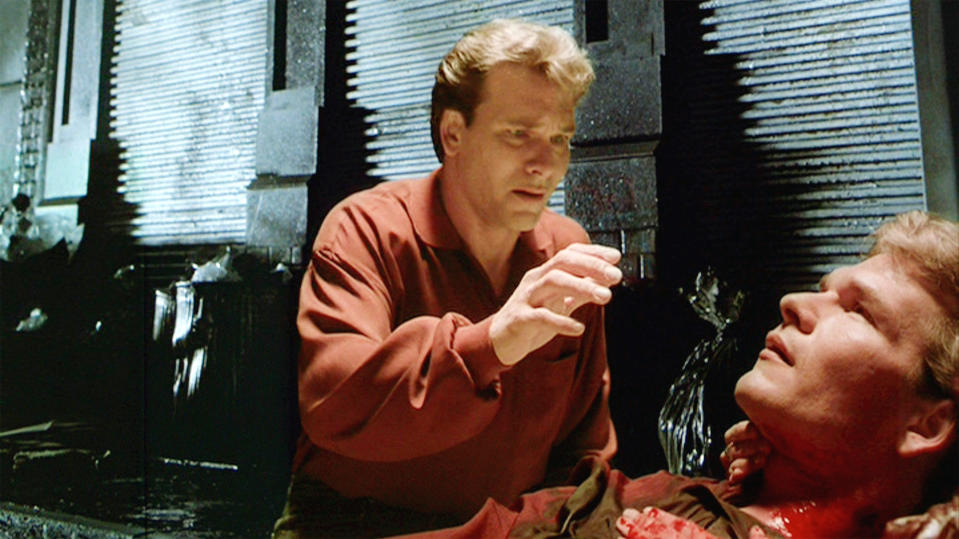
“I thought the screenplay was stunning — on a more primal level, the supernatural love story is so beautifully done. We all experience love and loss and the idea of communion with somebody we’ve lost is just incredibly powerful.”
He recalls that when he first saw the film, “people laughed and cried and screamed at the screen. It was very exciting.” And, yes, he welled up as well.
Chemistry

How do you create a romance when the leading man dies just 20 minutes into the story? Sounds impossible, but it came down to that indefinable chemistry between Moore and Swayze, something only the camera could see but which made them enchanting as a couple. Goldwyn describes them as having “great alchemy on screen together.”
Having established their on-screen sizzle while they playfully set up home in the early sequences, they carried it through right to their final goodbye – giving us one of the most memorable romantic scenes in modern cinema along the way. That’s ironic when you consider that director Jerry Zucker originally declared he’d cast Swayze “over my dead body.” That was before he watched the actor’s audition
Chemistry between Swayze and Goldwyn was just as essential to make the betrayal driving the story totally convincing. Goldwyn remembers that an early scene was key in making sure the audience bought into the two being close friends.
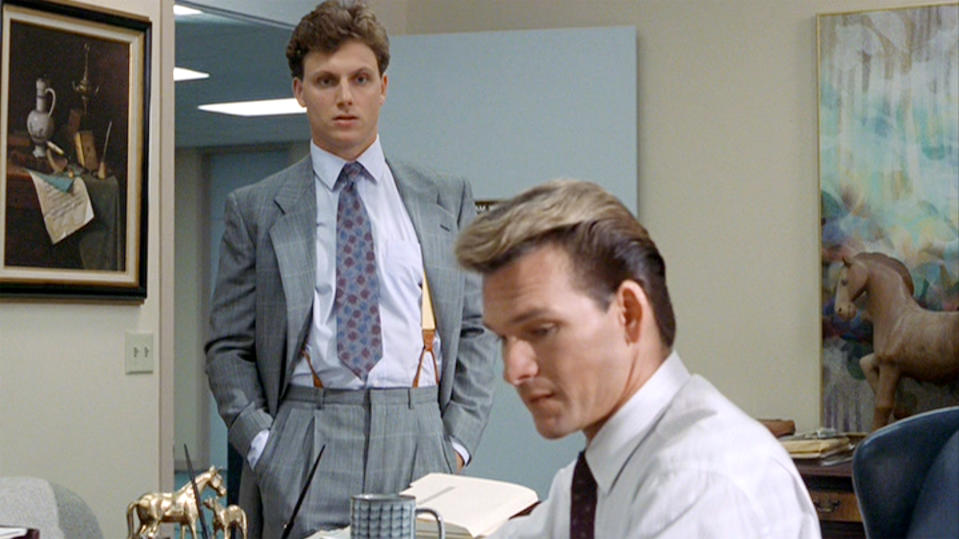
“That was a fun little jokey scene but, for me, it was an opportunity to establish the genuine friendship between Carl and Sam, so Patrick and I were just playing around in the elevator — I think I was coughing on the guy in front of me and making a joke about having an infection. We did the scene just two or three times, because it’s one of those scenes that only works when it’s spontaneous.”
Cast
Moore’s portrait of grief — and her ability to cry to order — as well as Swayze’s effortless charm and Goldberg’s comedy chops all linger in the memory, as does the fourth key character, Goldwyn’s Carl, the friend who turns out not to be everything he seems. As he describes it, Carl is somebody with “a squishy set of morals.”
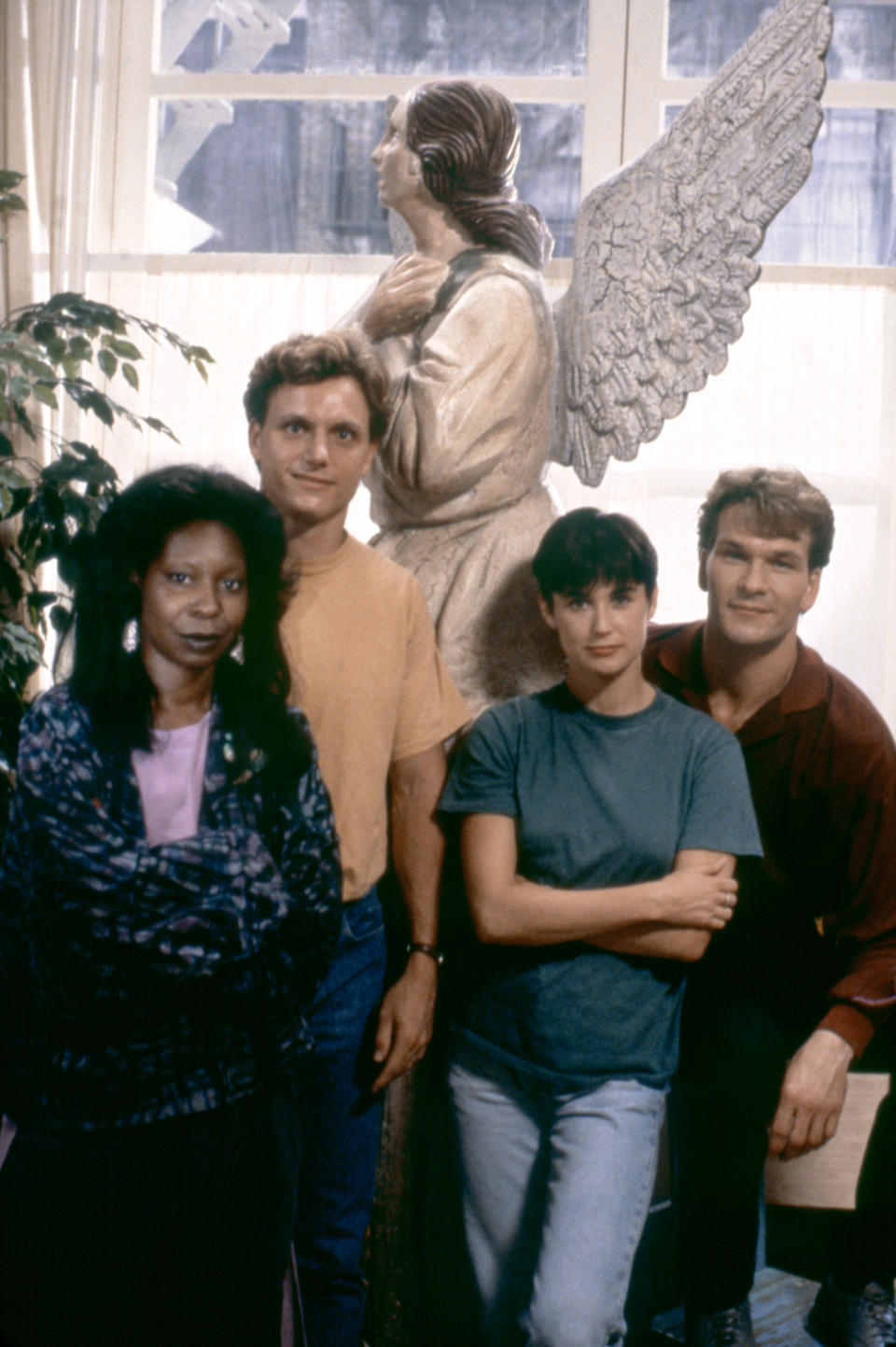
Goldwyn credits his wife as the driving force behind him landing the part.
“She was the production designer on the movie and she was pushing me to get an audition for it, which was extremely difficult,” he says. “Somehow I managed to push myself inside the door.”
Once the film was released, the film’s main bad guy was constantly recognized on the street — and elsewhere.
“I was shocked and stunned by how much people hated my character. I was doing a play in New York when the movie first came out and was a giant hit,” he remembers. “I went into a restaurant, but the waitress refused to seat me. I was eventually given a seat, and she took my order in a very rude way.

“Then she was staring at me and, after a few minutes came over to me and said, ‘Are you an actor?’ And I said yes, and she said, ‘You’re in that movie, aren’t you? I knew I hated you, but I couldn’t figure out why!’”
Despite a successful career on stage and screen, he’s recognized every day as the villainous Carl. For him, the film is “indelible.”
“That” scene

It’s been parodied so many times and happens surprisingly early on in the film, but the pottery-making scene is the stellar moment: the one that everybody remembers — even if they’ve never seen the film.
That enormous, phallic pot wasn’t meant to collapse, but Moore and Swayze reacted with such spontaneity, making the moment more sensual, more erotic, that what was intended as just a prelude to lovemaking ended up becoming the whole scene itself.
It became unexpectedly iconic, spoofed with varying degrees of success in The Naked Gun 2?, Family Guy, Community and even by Demi Moore’s ex Ashton Kutcher on an episode of Two and a Half Men.
Pottery wheels have never been quite the same again.
Action

Alongside the tears, the laughter and the romance came the action. Ghost used rotoscoping for Carl’s final scene, although Tony Goldwyn’s memories of shooting it are something less than sophisticated.
“We had dancers in black tights on roller skates choreographing the scene where they drag me back,” he says. “When they actually filmed it there was a cable pulling me while I looked like I was wrestling with the dancers. But there was nobody there, so I just did this spasmodic dance. It was effective, but in a rudimentary way if you think about special effects nowadays.”
His ‘fight’ with Oda Mae was even more dramatic than it appeared on screen. “Whoopi had a stunt double for the scene when I tackled her on the ground. I recall I had my hand on her face and was being quite threatening and I said to her ‘let me know if I hurt you.’
“She told me she was fine, we kept doing it and all of a sudden I noticed tears in her eyes. I’d got over-exuberant and I was hurting her. She was fine, but I felt really bad about it. Luckily Whoopi wasn’t the recipient of that!”
Dialogue
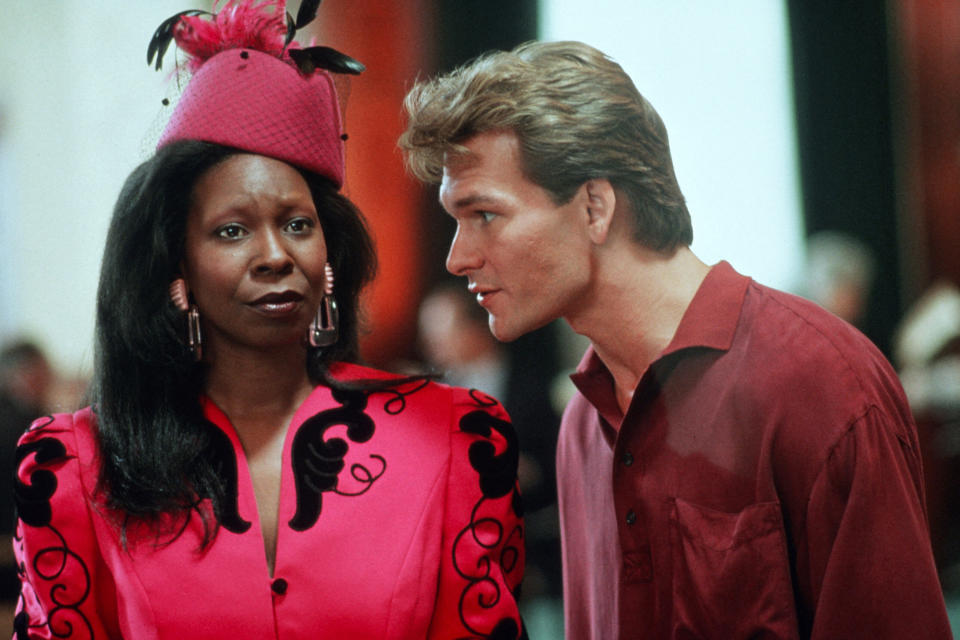
Most of the laughs in Ghost were down to Whoopi Goldberg as not-so-fake psychic, Oda Mae Brown. Her comic timing was on the button, but screenwriter Rubin’s lines were a gift, and she got the lion’s share.
Who else could have ranted with such panache about handing over $4 million to a couple of nuns? “I don’t want to go to heaven! I want to go to the bank and cash a god**** check.”
And she also delivered perhaps the most quoted line from the entire movie: “Molly, you in danger, girl!”
Music
The film breathed new life into the Righteous Brothers’ 1965 cover of “Unchained Melody,” making it a hit all over again. Alongside “that” pottery scene, it’s what everybody remembers about the film, effortlessly transporting fans back into that Soho flat with Sam and Molly.
But it was more than just the soundtrack to pottery-making. Composer Maurice Jarre crafted his score around the theme, so that it echoes throughout the movie, especially in those tear-jerking final moments.
A masterly stroke.
Read more from Yahoo Entertainment:
Vanessa Bryant grieves husband Kobe and daughter Gigi: 'I can't process both at the same time'
Ricky Gervais calls out Oscar stars for using 'privileged, global platform' for political messages
'Something's Gotta Give' co-stars Keanu Reeves and Diane Keaton reunite at the Oscars
Want daily pop culture news delivered to your inbox? Sign up here for Yahoo Entertainment & Lifestyle's newsletter.
